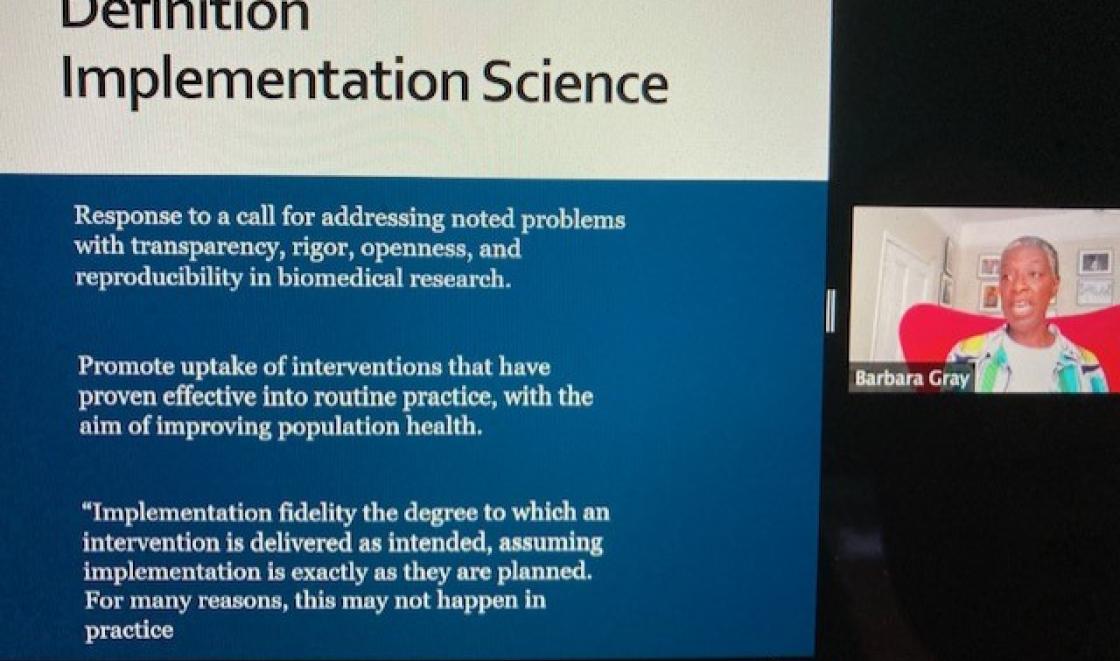Delegates came from 15 countries, including Australia, Brazil, Canada, Germany, Ireland, Japan, the Netherlands, Rwanda, South Africa, Spain, Sweden, Switzerland, Uganda, UK and USA, and included applied researchers, health and social care professionals, policymakers, and service user researchers.
The conference was organised by the Centre for Implementation Science at King’s College London and was supported by the UK Implementation Society, King’s Health Partners, BMC and the journal Frontiers in Health Services.
The five plenary lectures explored not only how implementation science has helped the pandemic response, but also how it could do things differently, and what lessons can we learn. The five plenaries were delivered by:
- Barbara Gray, CEO Urban Dandelion CIC, Health Inequalities Advisor to Lewisham Mayor and Council, who examined whether loyalty to implementation fidelity comes at the expense of diverse communities and groups within society
- Professor Trish Greenhalgh, professor of primary care health sciences, University of Oxford, who examined how uncertainty, urgency and threat (Boin et al) have shaped and constrained the response of implementation science to the Covid-19 pandemic
- Professor Susan Michie, professor of health psychology, and director of the Centre for Behaviour Change at UCL, who explored whether there was a gap in the science informing the UK’s Covid-19 response, drawing on her experience on SAGE and Independent SAGE
- Associate professor Rohina Joshi, a Scientia fellow in the Faculty of Medicine, UNSW Sydney, who explored the delivery of primary health services in low- and middle-income countries during Covid-19, drawing on examples from India, Mexico and South Africa
- Dr Habib Naqvi, director of the NHS Race and Health Observatory, who discussed inequalities in health in relation to race and ethnicity, and how these can be addressed.
Across the conference, there were 49 oral and poster presentations, covering theories and frameworks, stakeholder engagement and co-production, and global health. The abstracts presented will be published by BMC in a special supplement of Implementation Science.
